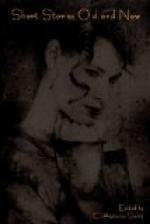The purpose of the story was to encourage the feast of Purim (chapter ix, verses 20-32) and to promote national solidarity. It may be compared to “A Christmas Carol,” which was written to restore the waning celebration of Christmas, and to our Declaration of Independence, which is re-read on every Fourth of July to quicken our sense of national fellowship. But “Esther” is more than an institution. It is the old story of two conflicting civilizations, one representing bigness, the other greatness; one standing for materialism, the other for idealism; one enthroning the body, the other the spirit.
Characters. These are finely individualized, though each seems to me a type. Ahasuerus is a tank that runs blood or wine according to the hand that turns the spigot. He was used for good but deserves and receives no credit for it. No man ever missed a greater opportunity. He was brought face to face with the two greatest world-civilizations of history; but, understanding neither, he remains only a muddy place in the road along which Greek and Hebrew passed to world-conquest. Haman, a blend of vanity and cruelty and cowardice but not without some power of initiative, was a fit minister for his king. He lives in history as one who, better than in Hamlet’s illustration, was “hoist with his own petard,” the petard in his case being a gallows. He typifies also the just fate of the man who, spurred by the hate of one, includes in his scheme of extermination a whole people. Collective vengeance never received a better illustration nor a more exemplary punishment. Mordecai is altogether admirable in refusing to kowtow to Haman and in his unselfish devotion to his fair cousin, Esther. The noblest sentiment in the book—“Who knoweth whether thou art come to the kingdom for such a time as this?”—comes from Mordecai.
But the leading character is Esther, not because she was “fair and beautiful” but because she was hospitable to the great thought suggested by Mordecai. None but a Jew could have asked, “Who knoweth whether thou art come to the kingdom for such a time as this?” and none but a Jew could have answered as Esther answered. The question implied a sense of personal responsibility and of divine guidance far beyond the reach of Persian or Mede or Greek of that time. It calls up many a quiet hour when Esther and Mordecai talked together of their strange lot in this heathen land and wondered if the time would ever come when they could interpret their trials in terms of national service rather than of meaningless fate. Imagine the blank and bovine expression that Ahasuerus or Haman would have turned upon you if you had put such a question to either of them. But in the case of Esther, Mordecai’s appeal unlocked an unused reservoir of power that has made her one of the world’s heroines. She had her faults, or rather her limitations, but since her time men have gone to the stake, have built up and torn down principalities and powers, on the dynamic conviction that they had been sent to the kingdom “for such a time as this.”]




